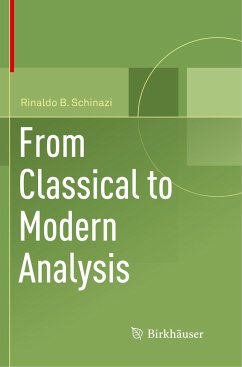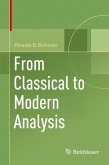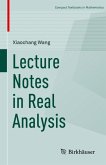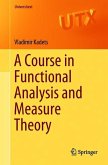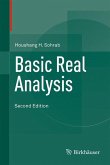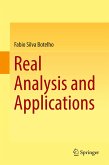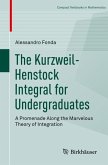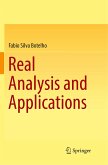This innovative textbook bridges the gap between undergraduate analysis and graduate measure theory by guiding students from the classical foundations of analysis to more modern topics like metric spaces and Lebesgue integration. Designed for a two-semester introduction to real analysis, the text gives special attention to metric spaces and topology to familiarize students with the level of abstraction and mathematical rigor needed for graduate study in real analysis. Fitting in between analysis textbooks that are too formal or too casual, From Classical to Modern Analysis is a comprehensive, yet straightforward, resource for studying real analysis.
To build the foundational elements of real analysis, the first seven chapters cover number systems, convergence of sequences and series, as well as more advanced topics like superior and inferior limits, convergence of functions, and metric spaces. Chapters 8 through 12 explore topology in and continuityon metric spaces and introduce the Lebesgue integrals. The last chapters are largely independent and discuss various applications of the Lebesgue integral.
Instructors who want to demonstrate the uses of measure theory and explore its advanced applications with their undergraduate students will find this textbook an invaluable resource. Advanced single-variable calculus and a familiarity with reading and writing mathematical proofs are all readers will need to follow the text. Graduate students can also use this self-contained and comprehensive introduction to real analysis for self-study and review.
To build the foundational elements of real analysis, the first seven chapters cover number systems, convergence of sequences and series, as well as more advanced topics like superior and inferior limits, convergence of functions, and metric spaces. Chapters 8 through 12 explore topology in and continuityon metric spaces and introduce the Lebesgue integrals. The last chapters are largely independent and discuss various applications of the Lebesgue integral.
Instructors who want to demonstrate the uses of measure theory and explore its advanced applications with their undergraduate students will find this textbook an invaluable resource. Advanced single-variable calculus and a familiarity with reading and writing mathematical proofs are all readers will need to follow the text. Graduate students can also use this self-contained and comprehensive introduction to real analysis for self-study and review.

